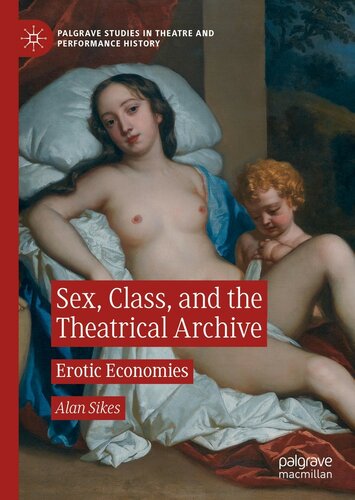

Most ebook files are in PDF format, so you can easily read them using various software such as Foxit Reader or directly on the Google Chrome browser.
Some ebook files are released by publishers in other formats such as .awz, .mobi, .epub, .fb2, etc. You may need to install specific software to read these formats on mobile/PC, such as Calibre.
Please read the tutorial at this link: https://ebookbell.com/faq
We offer FREE conversion to the popular formats you request; however, this may take some time. Therefore, right after payment, please email us, and we will try to provide the service as quickly as possible.
For some exceptional file formats or broken links (if any), please refrain from opening any disputes. Instead, email us first, and we will try to assist within a maximum of 6 hours.
EbookBell Team

4.3
28 reviewsIn Sex, Class and the Theatrical Archive: Erotic Economies, Alan Sikes explores the intersection of struggles over sex and class identities in politicized performances during key revolutionary moments in modern European history. The book includes discussions of sodomitical closet dramas from the decades surrounding the English Glorious Revolution of 1688; the performances of 'Tribades and Amazons', public women of the French Revolution; the 'homophilic elitism' in the early plays of Brecht and Hasenclever from the years just before and after the German Revolution that marked the founding of the short-lived Weimar Republic; and the utopian conception of a Soviet 'New Woman' set to take the stage after the Russian Revolution of 1917. Throughout, Sikes invokes the differences between past and present politicized performances in order to cast our own political imaginings into sharper and more critical relief.